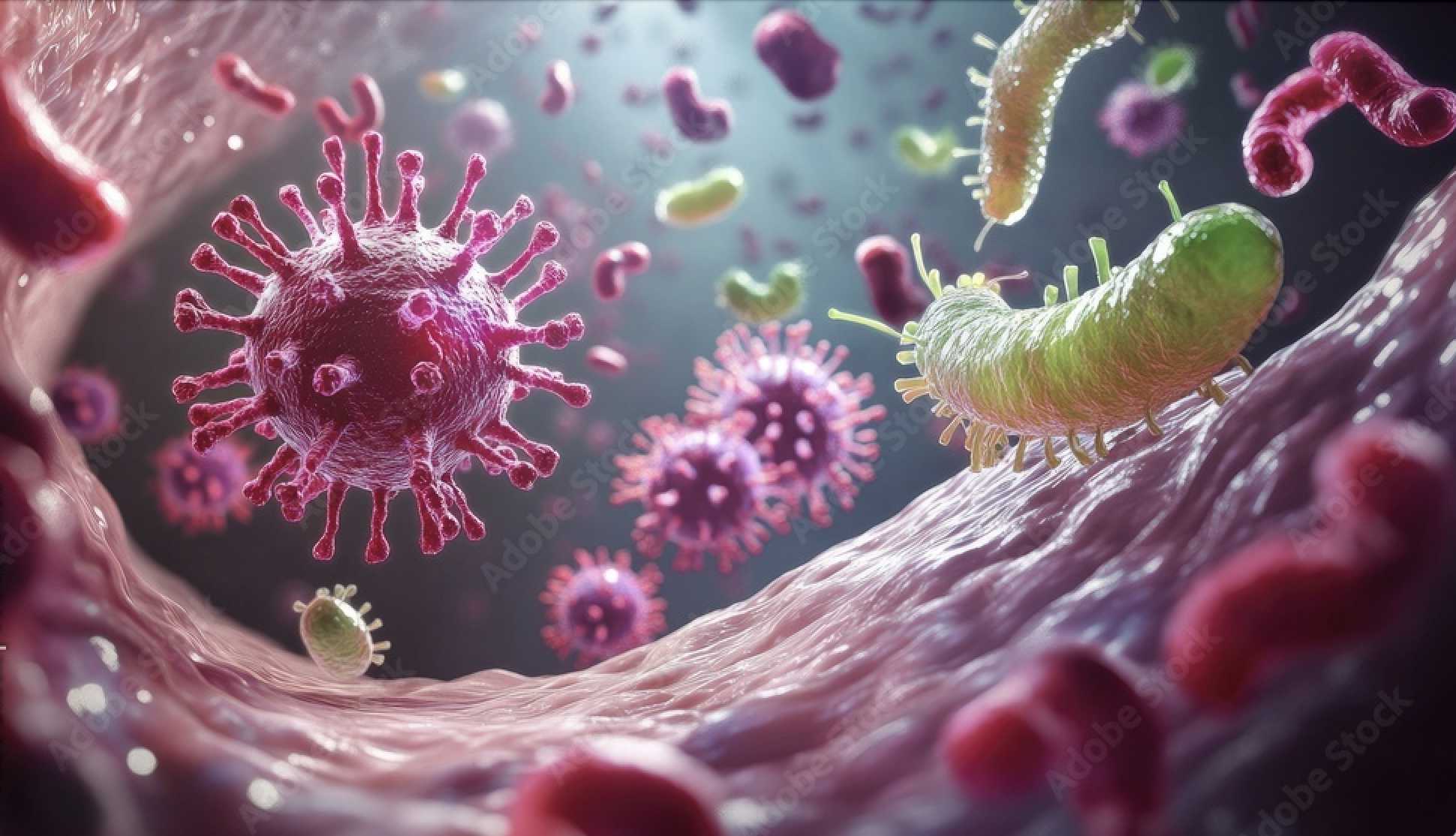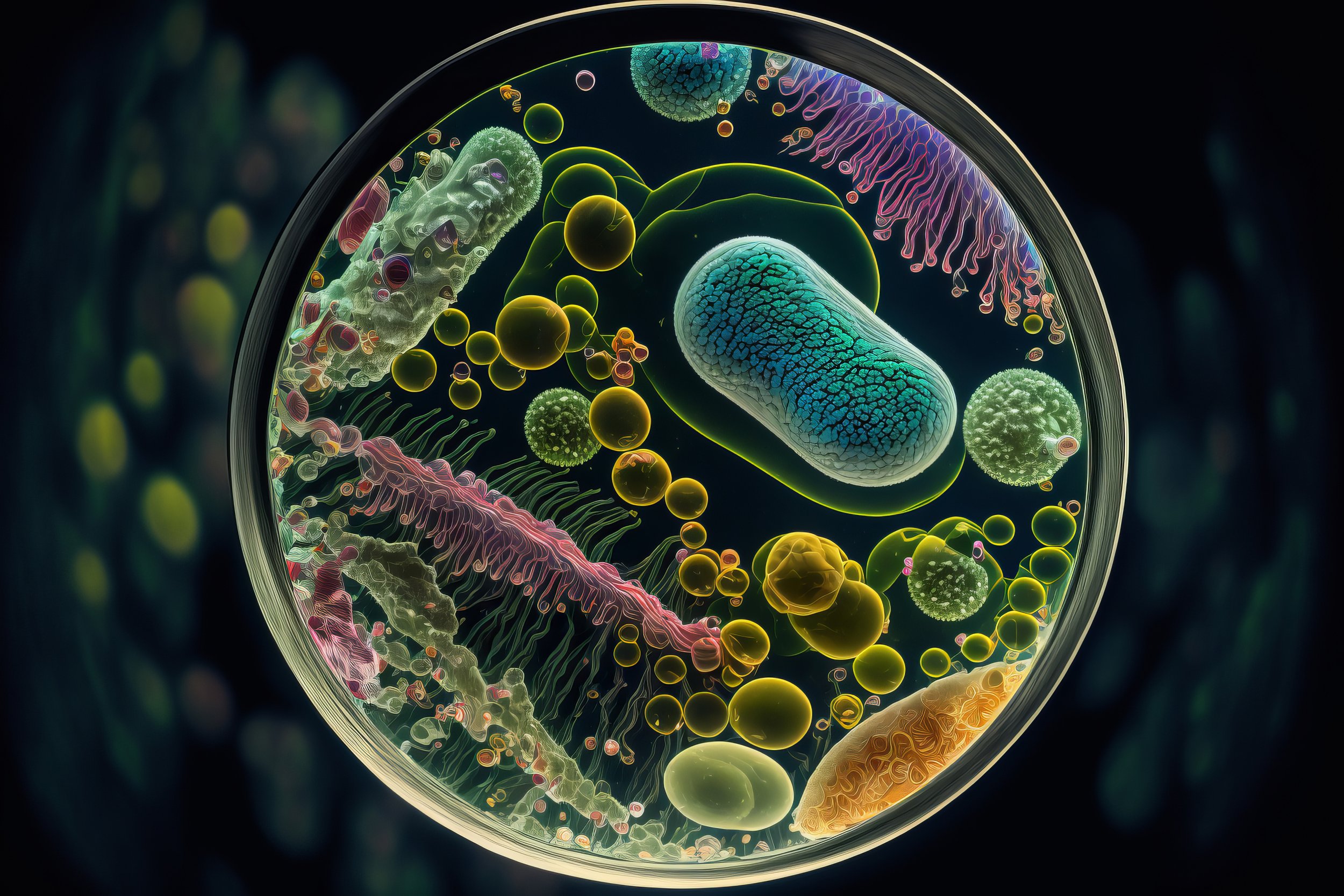
Research
The microbiota impacts all aspects of human health, including the immune system, metabolism, and neurological health. Microbiome research is an area of exponential growth. Discovery efforts on the microbiome have the potential to reshape treatment paradigms in human disease.
MAGIC aims to catalyze discoveries in this area to realize this vision.
Focused Research
-

Inflammatory Bowel Disease (IBD)
-
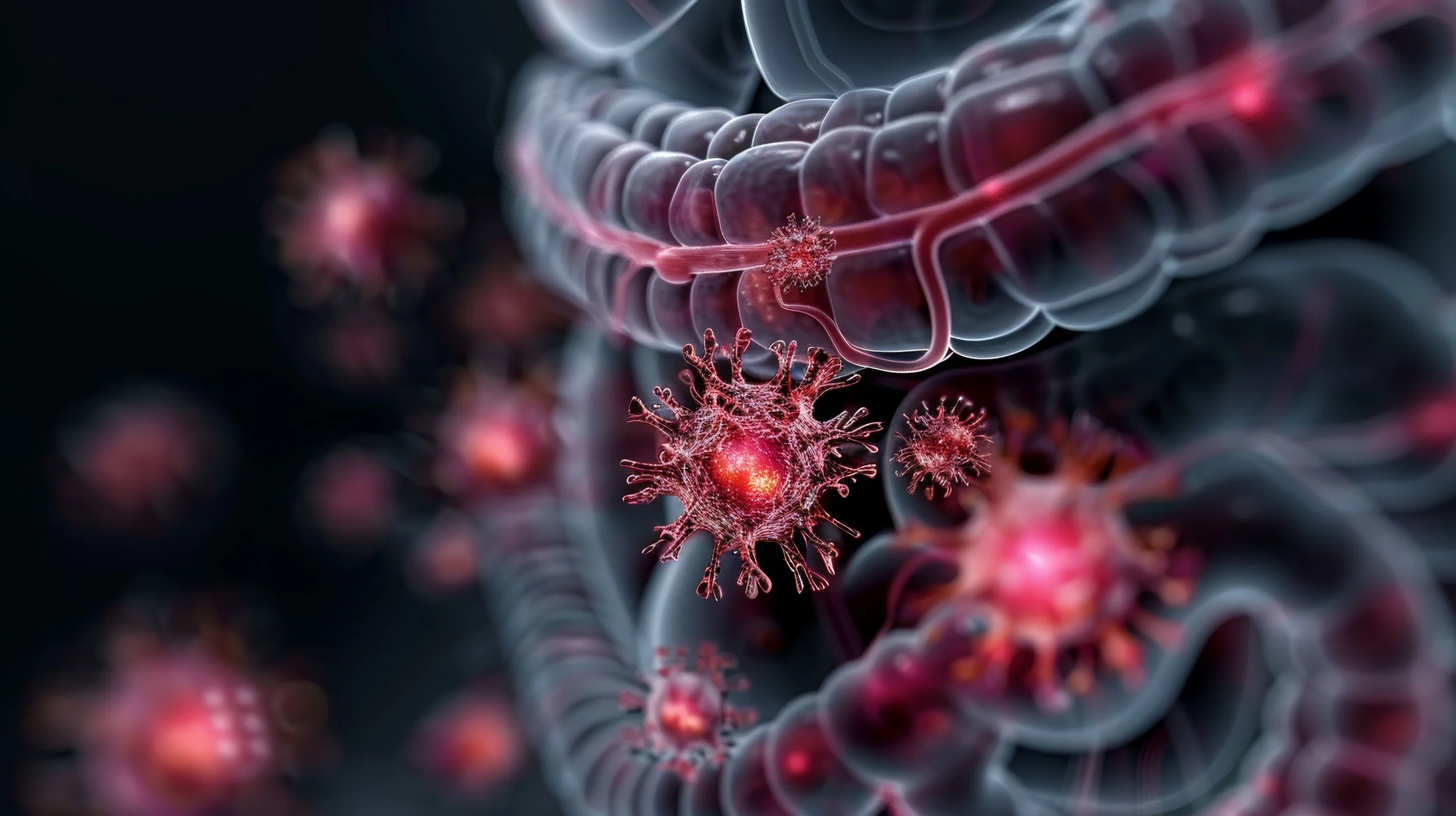
Intestinal Infections
-
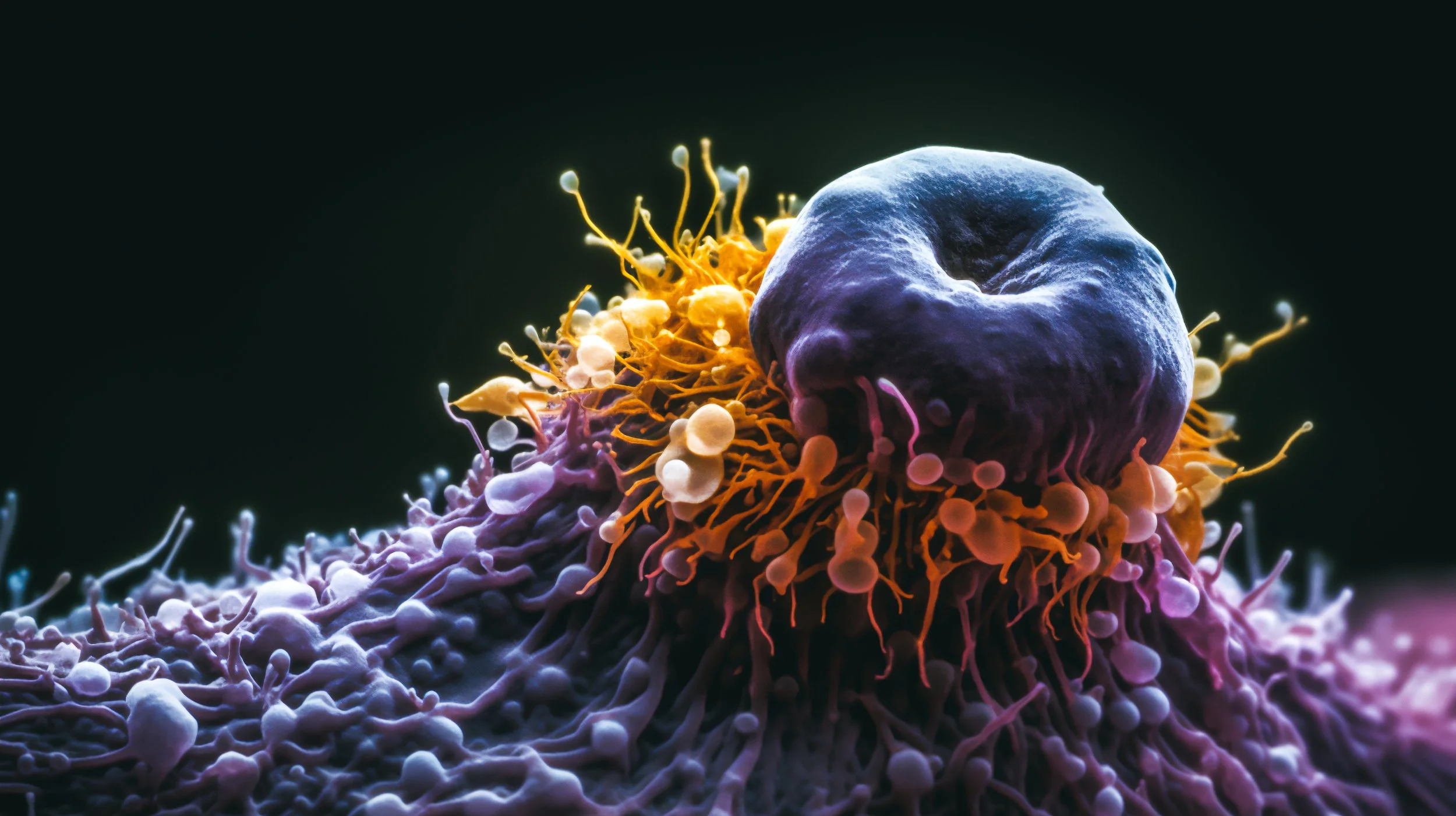
GI Cancer
-

Eosinophilic Gastrointestinal Diseases
-

Metabolic Disease
-
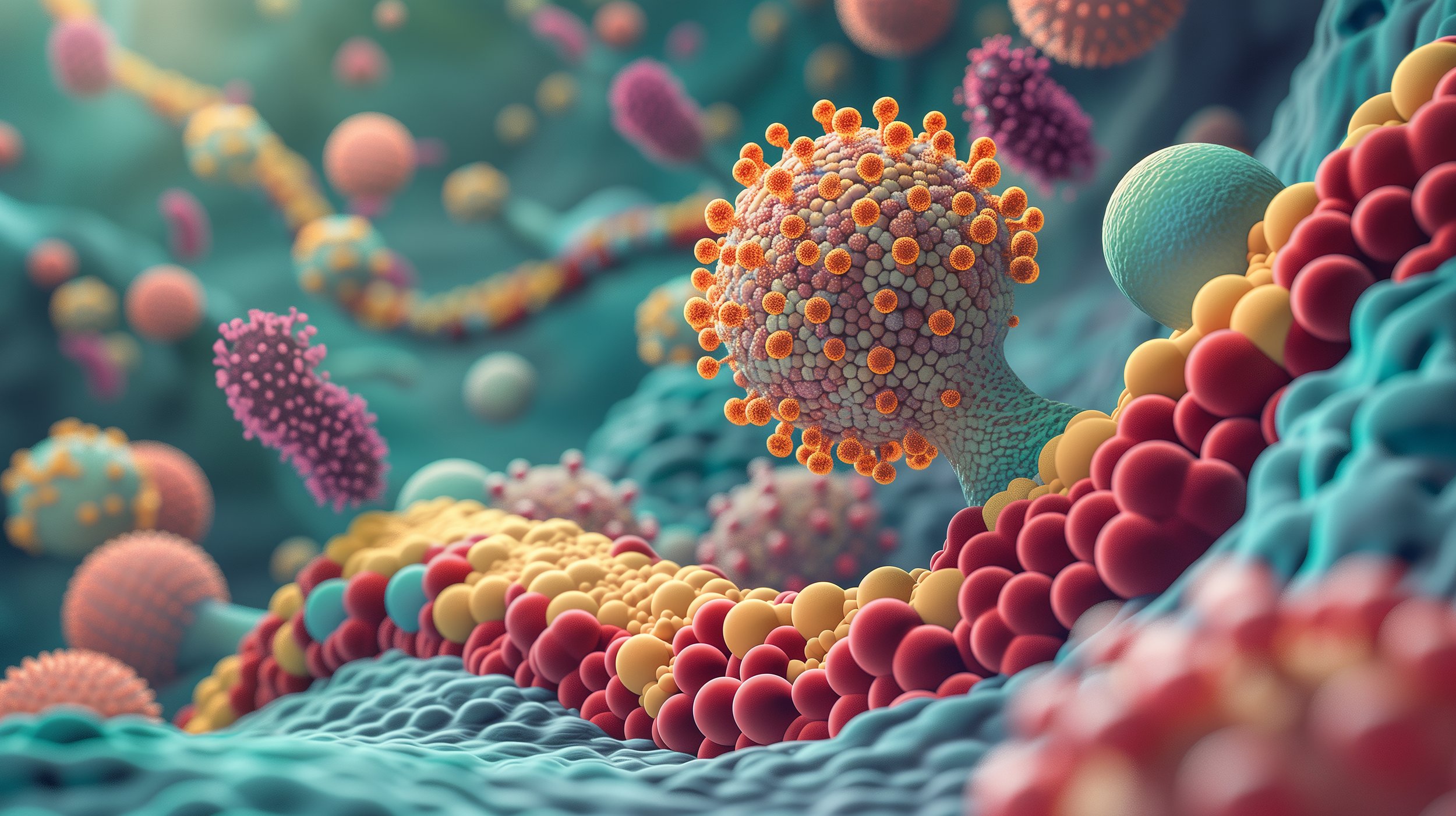
Neurological Disease
Inflammatory Bowel Disease (IBD)
Inflammatory bowel Diseases (IBD), such as Crohn’s disease and Ulcerative colitis, has been steadily rising in incidence all over the world. In fact, 1 in 123 people will be diagnosed with IBD and this poses a tremendous burden on the health care system as there currently is no cure and many of the therapies are quite expensive. More importantly, individuals with IBD are in constant pain, more likely to develop colon cancer, and this disease has a serious burden on their quality of life, social interactions and ability to work. Despite the advancements in therapies for IBD over the last decade, many patients quickly become unresponsive to treatment. Thus, understanding the underlying causes of these diseases will allow for the better therapeutics and preventative strategies.
While the cause of IBD remains unknown it seems clear that microbiota composition is a critical aspect of its development. Research at the University of Utah has discovered microbes and immune pathways that help prevent this disease in animal models. Collaborations across the MAGIC center will help to move these critical discoveries to the benchside.
Relevant Publications
CD11c+ myeloid cell exosomes reduce intestinal inflammation during colitis
Kaylyn M Bauer, Morgan C Nelson, William W Tang, Tyson R Chiaro, D Garrett Brown, Arevik Ghazaryan, Soh-Hyun Lee, Allison M Weis, Jennifer H Hill, Kendra A Klag, Van B Tran, Jacob W Thompson, Andrew G Ramstead, Josh K Monts, James E Marvin, Margaret Alexander, Warren P Voth, W Zac Stephens, Diane M Ward, Aaron C Petrey, June L Round, Ryan M O'Connell
JCI Insight. 2022 Oct 10;7(19):e159469
Hyaluronan in inflammatory bowel disease: Cross-linking inflammation and coagulation
Aaron C Petrey, Carol A de la Motte
Matrix Biol. 2019 May:78-79:314-323
Intestinal Infections
Daniel Leung, Matt Mulvey, Jackie Winter, Nicole Pershing, Andrew Skinner
Virtually all pathogenic agents must cross a mucosal barrier to infect their host. Mucosal sites, such as the mouth, the lung and the GI tract, are also home to the trillions of the microbes that reside on the human body. Thus, the interactions between these commensal microbes and the immune system at mucosal sites are instrumental in combating and preventing infectious agents.
Additionally, under specific circumstances, commensal microbes can cause problems. The researchers at the University of Utah are studying mechanisms by which gut bacteria can prevent pathogenic organisms, such as COVID-19, from causing severe disease and uncover the unique immune pathways that fend off harmful microbes.
Relevant Publications
Colin W Russell, Brittany A Fleming, Courtney A Jost, Alexander Tran, Alan T Stenquist, Morgan A Wambaugh, Mary P Bronner, Matthew A Mulvey
Infect Immun. 2018 Feb 20;86(3):e00746-17
Shubhanshi Trivedi, Allie H Grossmann, Owen Jensen, Mark J Cody, Taylor A Wahlig, Paula Hayakawa Serpa, Charles Langelier, Kristi J Warren, Christian C Yost, Daniel T Leung
Open Forum Infect Dis. 2021 May 7;8(6):ofab237
Most of the microbes that reside on our body live in the gastrointestinal tract and, not surprisingly, have been shown to influence cancer development. Cancers occur at sites within the GI tract including the liver, pancreas, gall bladder, small intestine and colon. Moreover, many of these cancers are increasing in incidence across the globe. While once thought to be a disease of the old is now rapidly increasing in younger individuals. Thus, understanding mechanisms that initiate and prevent these devastating cancers can have a large impact on the global population. Microbes have an intimate association with these tissues sites. Metabolites and products from the microbiota can directly interact with these GI tissues and therefore impact the development and prevention of these cancers. The MAGIC center aims to connect clinicians and scientists in this area to identify novel immune pathways and microbial molecules to treat and prevent this disease.
Relevant Publications
Hsin-I Huang, Yue Xue, Mark L Jewell, Chin Yee Tan, Barbara Theriot, Nupur Aggarwal, Jacob Dockterman, Yang-Ding Lin, Erin A Schroeder, Donghai Wang, Na Xiong, Jörn Coers, Mari L Shinohara, Neeraj K Surana, Gianna Elena Hammer
Cell Rep. 2023 Aug 29;42(8):112951.
Differences in the gut microbiome by physical activity and BMI among colorectal cancer patients
Caroline Himbert, W Zac Stephens, Biljana Gigic, Sheetal Hardikar, Andreana N Holowatyj, Tengda Lin, Jennifer Ose, Eric Swanson, Anjelica Ashworth, Christy A Warby, Anita R Peoples, David Nix, Jolanta Jedrzkiewicz, Mary Bronner, Bartley Pickron, Courtney Scaife, Jessica N Cohan, Petra Schrotz-King, Nina Habermann, Juergen Boehm, Meredith Hullar, Jane C Figueiredo, Adetunji T Toriola, Erin M Siegel, Christopher I Li, Alexis B Ulrich, David Shibata, Kenneth Boucher, Lyen C Huang, Martin Schneider, June L Round, Cornelia M Ulrich
Am J Cancer Res. 2022 Oct 15;12(10):4789-4801.
Eosinophilic Gastrointestinal Diseases
Eosinophilic gastrointestinal diseases (EGIDs) are chronic allergic inflammatory diseases of the GI tract that are increasingly common and have few to no therapies. Researchers at the University of Utah are working to understand how environmental factors like diet and the microbiota impact human health in the setting of EGIDs.
Relevant Publications
Jiarui Ding, John J. Garber, Amiko Uchida, Ariel Lefkovith, Grace T. Carter, Praveen Vimalathas, Lauren Canha, Michael Dougan, Kyle Staller, Joseph Yarze, Toni M. Delorey, Orit Rozenblatt-Rosen, Orr Ashenberg, Daniel B. Graham, Jacques Deguine, Aviv Regev & Ramnik J. Xavier
Nat Commun 15, 3344 (2024). https://doi.org/10.1038/s41467-024-47647-0
Seung Kim, Netali Ben-Baruch Morgenstern, Kasumi Osonoi, Seema S Aceves, Nicoleta C Arva, Mirna Chehade, Margaret H Collins, Evan S Dellon, Gary W Falk, Glenn T Furuta, Nirmala P Gonsalves, Sandeep K Gupta, Ikuo Hirano, Girish Hiremath, David A Katzka, Paneez Khoury, John Leung, Robbie Pesek, Kathryn A Peterson, Maria A Pletneva, Jonathan M Spergel, Joshua B Wechsler, Guang-Yu Yang, Marc E Rothenberg, Tetsuo Shoda
J Allergy Clin Immunol Pract. 2024 Dec;12(12):3346-3355.e1. doi: 10.1016/j.jaip.2024.05.015. Epub 2024 May 18. PMID: 38768900; PMCID: PMC11570700.
Amiko M Uchida, Sophia S Schuman, Ashley Pyne, Kathryn Peterson, Marie Carlson, John J Garber, Bjorn Roelstraete, Jonas F Ludvigsson
United European Gastroenterol J. 2024 Dec;12(10):1378-1387.
Metabolic Disease
Maria Bettini, Anandh Velayutham, Denise Dearing, Matt Bettini, Jackie Winter, JB Lubin
Obesity and diabetes are becoming a worldwide epidemic. While dietary interventions are known to improve these diseases, these interventions do not always work. What we consume or what medications we take can influence the communities of bacteria within our gut. Understanding how these microbes and nutrition influence the development of diabetes and obesity can identify novel strategies for treatment. Research at the University of Utah has uncovered gut microbes that can prevent obesity, nutritional supplements that improve metabolic health, immune pathways that elicit diabetes, and gut microbial molecules that might temper development of diabetes. Collaborations fostered through the MAGIC center will help identify other important interactions between the immune system and microbes that could help address this growing global problem.
Further Reading
These Gut Bacteria Prevent Obesity in Mice. What Could That Mean for Us?
Relevant Publications
Adhini Kuppuswamy Satheesh Babu, Chrissa Petersen, Lisard Iglesias-Carres, Henry A. Paz, Umesh D. Wankhade, Andrew P. Neilson, Pon Velayutham Anandh Babu
Biofactors. 2024 Mar-Apr;50(2):392-404
T cell-mediated regulation of the microbiota protects against obesity
Charisse Petersen, Rickesha Bell, Kendra A Klag, Soh-Hyun Lee, Raymond Soto, Arevik Ghazaryan, Kaitlin Buhrke, H Atakan Ekiz, Kyla S Ost, Sihem Boudina, Ryan M O'Connell, James E Cox, Claudio J Villanueva, W Zac Stephens, June L Round
Science. 2019 Jul 26;365(6451):eaat9351
Neurological disease
Many individuals with neurological disorders have co-occurring gastro-intestinal symptoms. This includes diseases such as autism, multiple sclerosis, Parkinson’s diseases and even stroke patients. This clinical observation has led to the notion that many of these neurological disorders have connections to gut health. Supporting this, there is now data to demonstrate that the commensal microbes that reside within the gut can influence the severity of many of these diseases. Moreover, immune cells that reside within the intestine are capable of trafficking to the central nervous system (CNS) to prevent or exacerbate disease. This highlights that gastrointestinal health is an instrumental aspect of neurological health. Researchers at the University of Utah are discovering that microbes in the gut can prevent infection of the CNS, are involved in stroke and can influence behavior. This area of study covers expertise in neurology, immunology, microbiology and beyond. Thus, interactions across scientific disciplines and departments within MAGIC is instrumental in making advancements in these fields.
Further Reading
Autism’s Missing Microbes May Influence Social Behavior by Protecting the Gut (press release)
Relevant Publications
Brown DG, Murphy M, Caddedo R, Bell RS, Weis AM, Chiaro TR, Klag KA, Morgan J, Coon H, Stephens WZ, Bortolato M, Round JL.
Nat Comm. 2024 Mar 30;15:2769
J E Libbey, J M S Sanchez, B A Fleming, D J Doty, A B DePaula-Silva, M A Mulvey, R S Fujinami
Benef Microbes. 2020 Nov 15;11(7):669-684

